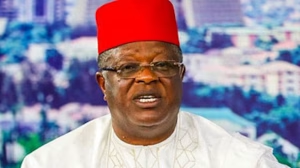The Nigerian government has appealed to the United Nations and its development partners for increased assistance in the implementation of a regional strategy aimed at stabilizing, recovering and building resilience in areas affected by terrorism in the Lake Chad region.
The call was made by the National Coordinator of the National Counter Terrorism Centre (NCTC) at the ongoing 3rd UN Counter-Terrorism Week in New York. The week-long event brings together Member States and international partners in counter-terrorism, under the theme “Addressing Terrorism through Reinvigorated Multilateral and Institutional Cooperation”.
In a statement released by the Director of Strategic Communication at the NCTC, Admiral Yaminu Musa highlighted the challenge posed by reintegration of a large number of repentant and low-risk individuals associated with Boko Haram and ISWAP. He stressed the need for increased international support to effectively address this menace.
Musa highlighted the Nigerian government’s efforts in combating the impact of Boko Haram over the past six years, with various measures such as the adoption of the United Nations Security Council Resolution 2349. These efforts have guided the formulation of key policies and strategies, including the 2022 Terrorism Prevention and Prohibition Act, the 2019 National Security Strategy, the 2017 National Action Plan for Preventing and Countering Violent Extremism, and the 2016 National Counter Terrorism Strategy.
The National Coordinator expressed gratitude for the UN’s significant support in rehabilitating affected areas in Nigeria. He also emphasized the need for enhanced global awareness and support in overcoming the inherent challenges and risks associated with reintegrating all categories of returning terrorists, particularly those moving within sub-Saharan Africa.
“In the Lake Chad Basin region,” Musa declared, “the UN and Developmental Partners must continue to strengthen their support for the implementation of the regional strategy for stabilization, recovery, and resilience of Boko Haram-affected areas.”





